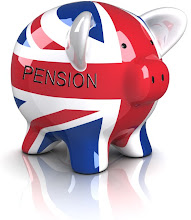Thursday 4 February sounds like an unremarkable date. However, economists fear it will be the day the mini-boom in the UK commercial property market comes to an end. Why? It is when the Bank of England's Monetary Policy Committee is expected to call a halt to its £200bn programme of quantitative easing (QE).
Crudely described as 'printing electronic money', QE has pumped cash into the economy through the purchase of government bonds and corporate bonds in the hope this will inject liquidity into the financial system.
Since March 2009 when the programme started, £200bn has been spent on this artificial prop to the economy. The knock-on effect for both commercial property values and the FTSE 350 Real Estate sector has been extremely positive.
QE made property look cheap. The principal side-effect of QE has been a weaker pound, meaning foreign investors have enjoyed a 'double discount' on UK property through the currency advantage. Currently, foreign buyers account for around 80 per cent of all commercial investment transactions.
Another partial consequence of QE, low bond yields, means property returns are also attractive to funds and institutions, who have all come back into the market. Increased demand for property assets from cash-rich buyers has caused values to rapidly inflate, with the industry benchmark IPD Index registering a record monthly rise in December.
However, there are gro wing fears that the suspension of QE will stop the nascent recovery in its tracks.
Written by: Claer Barrett
Tuesday, 26 January 2010
Subscribe to:
Post Comments (Atom)





No comments:
Post a Comment